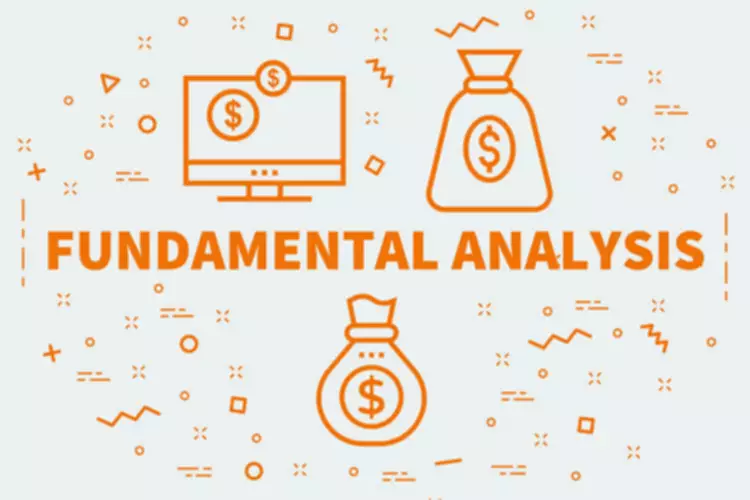Content

Accounting turns the information from the general ledger into insights that reveal the bigger picture of the business, and the path the company is progressing on. Business owners will often look to accountants for help with strategic tax planning, analysing their financial position, forecasting, and tax filing. A bookkeeper inputs your accounting information into an accounting platform, categorizing and tracking your expenses and sales. Additionally, a bookkeeper helps you pay bills and, depending on your business, follows up on accounts receivable.
Is bookkeeping still a good career?
Bookkeepers earn a median annual salary of $45,560, according to the U.S. Bureau of Labor Statistics (BLS). However, a bookkeeper's salary varies depending on their education, location and level of experience. The BLS projects employment for bookkeeping, accounting and auditing clerks to decline by 3% by 2030.
Bookkeeping is a steady career that can lead to more advanced positions. Below we explore just a few of the benefits that come along with working as a bookkeeper. Bookkeepers are integral to helping businesses make data-driven decisions and increasing operational efficiency. Learn how CapitalT reduced hiring bias with online skills assessments. With TestGorilla, you can create assessments made up of different skills tests to easily compare candidates’ bookkeeping abilities.
Difference between Bookkeeping and Accounting
The great part of this job is that you can learn how to do the work on the job. There are several schools that offer two-year degree programs in accounting or bookkeeping, but there is no formal requirement that you have a degree to work in this field. This does not mean that a degree won’t help you stand out amongst other applications to get the job. Qualifications for bookkeepers can vary depending on the company or organization.
- As a bookkeeper, your attention to detail must be almost preternatural.
- While the companies do not publish salaries on their websites, the benefits can be a large draw.
- The bookkeeper makes sure the transaction is properly categorized and then records it in the accounting information system.
- Let us know what type of degree you’re looking into, and we’ll find a list of the best programs to get you there.
- Some business owners learn to manage their finances on their own, while others opt to hire a professional so that they can focus on the parts of their business that they really love.
- You just need to be able to demonstrate that you have the skills to handle the tasks your clients need.
However, it can be difficult to catch up if you fall behind on reconciling transactions or tracking unpaid invoices. Regardless of your small business’s complexity, bookkeeping will still take time out of your week, so be sure you have the resources before committing to handling it yourself. Double-entry accounting enters every transaction twice as both a debit and a credit. Your business’s books are balanced when all of the debits equal (or cancel out) all of the credits. Although it’s more complicated, it can prevent bookkeeping errors. And since it takes equity, assets and liabilities — on top of expenses and income — into account, it typically gives you a more accurate financial snapshot of your business.
Learn More About Bookkeeper Jobs
Bookkeeping can equip you with valuable accounting skills and experience. You’ll gain experience using a general ledger, managing accounts payable and receivable, creating and managing data in spreadsheets and invoicing and accounting software. You’ll likely gain knowledge of regulatory standards and standard principles and practices of accounting. To complete bookkeeping tasks successfully, these professionals should have both hard and soft skills, including the following. Bookkeeping is a finance profession that involves tracking and recording an organization’s day-to-day financial transactions.

Bookkeeping is the process of recording daily transactions in a consistent way, and is a key component to gathering the financial information needed to run a successful business. With any course, to be successful best start with learning and mastering the basics, including understanding the terminology. You also need to understand the basics of bookkeeping and be confident with an eye for detail in recording and tracking financial expenses on a daily and monthly basis. A bookkeeper makes sure that the record books stay completely accurate, while an accountant offers financial advice and plans based on the credibility of those records.
Where Do Bookkeepers Work?
Maintaining a general ledger is one of the main components of bookkeeping. The general ledger is a basic document where a bookkeeper records the amounts from sale and expense receipts. The more sales that are completed, the more often the ledger is posted. A https://www.bookstime.com/articles/is-it-hard-to-be-a-bookkeeper ledger can be created with specialized software, a computer spreadsheet, or simply a lined sheet of paper. Learning how to use QuickBooks can be a challenge for those who do not have knowledge of bookkeeping systems or have limited knowledge of accounting.
These professionals can give you accounting and bookkeeping tips and tricks from their own experience. This is unlike the case of online courses, where you have to send an email or send a message to the instructor on a messenger app and wait for a response. There are a lot of institutes that offer small business workshops, giving valuable insights on bookkeeping and accounting.
Key Hard Skills for Bookkeepers
With those courses and certificates, he said, they can probably find jobs when they graduate from high school as entry-level payroll clerks or an accounts payable clerk. She sets up or cleans up Quickbooks Online files; categorizes their transactions; reconciles their bank accounts, credit cards, payroll, loans, and merchant accounts like Square and Shopify. She runs their balance sheet, profit & loss, and statements of cash flows to make sure everything looks correct and pays their sales taxes.
- You can access these courses through the NACPB Education Pathway.
- You can work as a bookkeeper if you can add, subtract, multiply, and divide.
- Keeping these numbers in mind, you can explore freelancing websites to see what people are charging for what services.
- This makes them a great option for professionals who actively use LinkedIn to network and job hunt.
- Tons of factors come into play if you want to make this adventure successful.
- Our bookkeepers take care of your tax preparation so that your accountant has less to do (which is a good thing, because bookkeepers are less expensive than a CPA).

